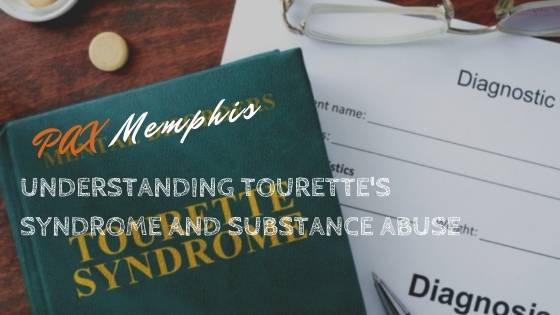You may have an idea of what Tourette’s syndrome is from things you’ve seen on TV or in movies. In popular media, people with Tourette’s syndrome are often depicted as yelling obscenities or shouting randomly in public places This is not an accurate depiction of the disorder. In reality, Tourette’s syndrome is more complex and can affect people in different ways. Researchers are also beginning to recognize that there may be a connection between Tourette’s syndrome and substance abuse.
The more we understand the link between Tourette’s syndrome and addiction, the better we can help those affected get the help they need. Both addiction and Tourette’s syndrome are treatable. When these conditions overlap, it can make successful treatment more difficult. Recognizing the risk factors and symptoms of both substance abuse and Tourette’s syndrome can help you identify that there is a problem and get effective treatment.
Understanding Tourette’s Syndrome
Tourette Syndrome is a condition defined by a person compulsively displaying repetitive behaviors or sounds, which are sometimes called “tics”. These tics might be blinking, shrugging, blurting out words or sounds–which can include profanity–or other physical movements. The intensity and frequency of these tics depend on many factors, including stress, age, and environmental factors. Some people even display their tics while sleeping.[1]
People are generally diagnosed when a person is between two and fifteen years old, with an average age of six. It is more common in males. Tics generally become less controlled during and after the teen years, but can sometimes improve as people enter adulthood.
Tourette’s syndrome has no known cause, but research suggests that gender and family history may play a role in the condition. If the tics are not disruptive to a person’s life, no treatment is needed.
Recognizing Addiction
Addiction occurs when someone uses drugs or alcohol and develops a dependence on the substance. There are some observable signs of addiction, which include:
- Needing more of the substance to get the same effect
- Spending a lot of time thinking about, using, and recovering from using the substance
- Continuing to use despite negative consequences
- Absences at work or school
- Failing to manage responsibilities at home and in the community
- Isolating from friends and family
- Secretive behavior around use of the substance
- Not enjoying activities without using the substance
- Changes in mood–aggression, restlessness, irritability
- Changes in appetite or sleep
Struggling with addiction is sometimes not obvious to observers until it is a significant issue in the person’s life. If you or someone you love are showing any of these common signs of addiction, it is important to get treatment and support as soon as possible to avoid long-term harm to your physical, mental, and social health.
The Connection Between Tourette’s Syndrome and Substance Abuse
Research suggests that a link exists between Tourette’s syndrome and substance abuse. About 6% of males and 7% of women with Tourette’s have a diagnosable substance abuse disorder.[2] Whenever there is an overlap between two conditions, it is especially important to get the right treatment to treat both.
Some people with Tourette’s syndrome may use drugs or alcohol to cover up their tics or help them feel more relaxed and confident in social settings. Repeated or prolonged use of drugs and alcohol can lead to substance abuse disorders or addiction. Substance abuse treatment is necessary for people who are using substances to mask the symptoms of their Tourette’s syndrome. They may also need to seek or continue treatment for their Tourette’s syndrome during or after their addiction treatment.
Treating Tourette’s Syndrome and Addiction
If someone with Tourette’s syndrome requires substance abuse treatment, they must receive treatment from a center that is competent at treating people with a dual diagnosis.
First, they will go through detox, if necessary. Then they will go through a treatment program. The length of this program will depend on the length and severity of their addiction.
Most addiction treatment programs include medications, counseling, and behavior modification therapies, as well as complementary, holistic therapies. People with Tourette’s syndrome benefit from the skills they learn in addiction treatment, including how to manage stress and challenges without using substances. After addiction treatment, they may need to participate in treatment for their Tourette’s to control their tics and avoid future substance abuse.
People who need treatment for Tourette’s syndrome sometimes take medications. They are also given skills to manage stress and participate in talk therapy, including Cognitive-behavioral therapy. Self-care, including holistic therapies like yoga, meditation, and acupuncture, are sometimes used as part of a treatment plan for Tourette’s syndrome.
Find Treatment for Tourette’s Syndrome and Substance Abuse Today
If you or someone you love have Tourette’s syndrome and are struggling with substance abuse, please reach out to the staff at the PAX Memphis Recovery Center. We offer comprehensive, compassionate addiction treatment and support for all stages of recovery. Please call today or fill out an online intake form here.
References:
Medically Reviewed: September 25, 2019

All of the information on this page has been reviewed and verified by a certified addiction professional.










